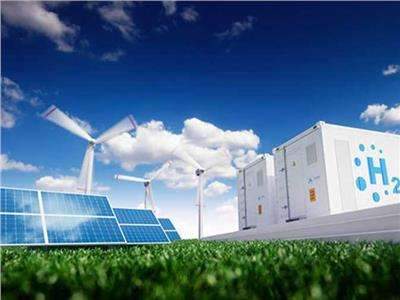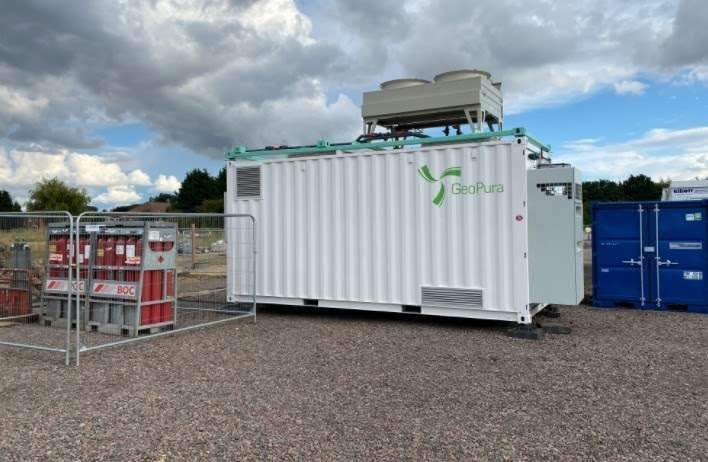How prepared the construction industry is to adopt hydrogen energy,
Global warming is a serious problem that poses a major threat to the ecosystem,
through rising temperatures, rising sea levels, water shortages, droughts, etc.
In addition, carbon emissions from building construction contribute to this problem significantly.
Therefore any effort towards reducing carbon emissions in the construction industry is critical,
and hydrogen power is an innovative and environmentally friendly energy source for construction sites.
It can eliminate CO 2 emitted from traditional energy sources such as diesel generators or electricity generated from fossil fuels.
Existing obstacles, such as the lack of infrastructure to deliver hydrogen,
stand in the way for developers to use green hydrogen energy.
However, this can be reversed by raising awareness about the benefits of hydrogen energy,
its practical applications, and the potential of construction projects.

How prepared the construction industry is to adopt hydrogen energy
Hydrogen power benefits
Hydrogen energy can be used as a reliable source of energy for construction sites,
and it can outperform other green, weather-dependent energy sources such as wind and solar,
where hydrogen can be delivered and made available like conventional fuels.
In addition, the use of hydrogen energy is more sustainable than fossil fuels,
which produce energy through combustion technology or fuel cells with zero emissions of carbon,
particulate matter and nitrogen oxide.
Therefore, it helps investors and developers achieve zero carbon emissions
and is a goal for some countries such as the United States and the United Kingdom by 2050.
Finally, hydrogen has a high energy density, which makes it more attractive than other storage technologies, such as batteries.
It can be argued that hydrogen is not at the same level of advancement or maturity as regular energy sources,
and therefore further technological development is always needed to address practical concerns.
Storing and transporting hydrogen can be a challenging task, because hydrogen is a light molecule
and must be compressed to a significantly high pressure range of 200 to 700 bar,
or liquefied to a significantly lower temperature of about -253 °C to make it a feasible energy carrier.
However, necessary progress has already been made,
for example some suppliers such as Aggreko will soon offer power generation solutions using currently available hydrogen transportation methods,
such as tube trailers and multi-cylinder packages as energy sources.
However, you must bear in mind that hydrogen is highly flammable,
so personal safety must be ensured at the site, and necessary safety precautions must be taken to avoid accidents.

Current technological progress
There are currently several options for using hydrogen energy; For example,
hydrogen combustion generator sets have been developed that can be used in temporary zero-emissions power applications.
Hydrogen can also be used to power fuel cells,
by converting the chemical energy of the fuel cell into electricity without the combustion process.
Therefore these cells are a clean and efficient way to keep construction equipment running,
especially those that need low noise operation, as is the case in most urban construction sites.

Economic importance and sustainability
The cost required to harness hydrogen power is approximately three to five times that of diesel power,
yet the cost of hydrogen power can be significantly reduced as hydrogen manufacturing capacity increases.
In addition to introducing mature renewable energy generation technologies and capabilities,
zero emissions targets could force the construction industry to move toward green energy options such as hydrogen power.
Government agencies encourage the use of these green energy sources by providing subsidies to project developers.
Meanwhile, these bodies are eliminating diesel subsidies,
California has adopted subsidies for hydrogen or other green energy sources,
and other countries such as the United Kingdom may soon follow suit.
The situation may change rapidly and the construction industry cannot only think from a critical point of view and needs to take steps towards a greener energy source.


 العربية
العربية